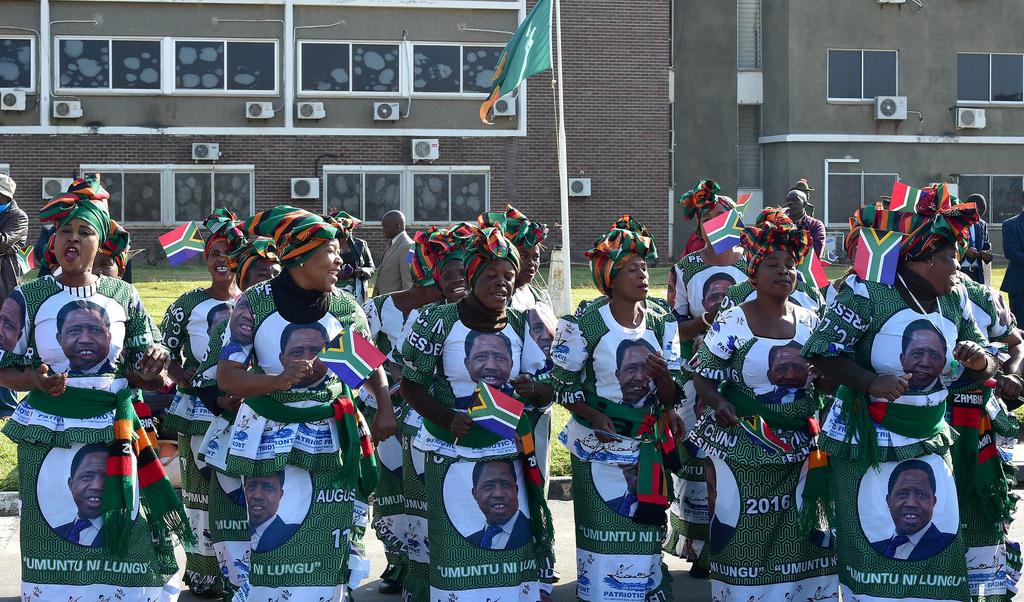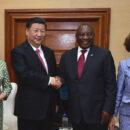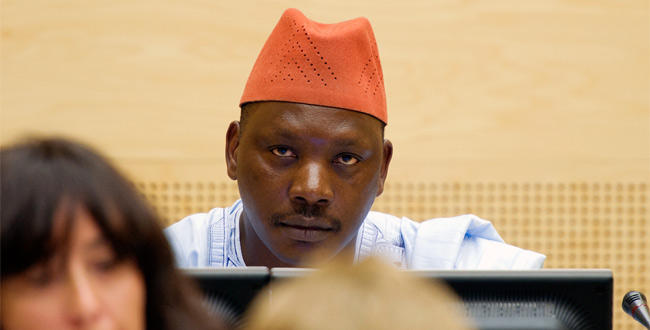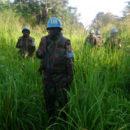Zambia’s opposition knows impeachment will fail. So what’s its game?

The opposition’s new strategy to keep questions over President Lungu’s legitimacy in the spotlight just might work.

Zambia’s President Edgar Lungu has been in power since 2015. Credit: GCIS.
On 23 March, Zambia’s main opposition party filed a motion seeking the impeachment of President Edgar Lungu. The action was led by the United Party for National Development (UPND) party and backed by a third of MPs.
The ruling Patriotic Front (PF) immediately derided the move. Presidential spokesperson Amos Chanda dismissed it as being destined for failure, noting that the opposition would never get the two-thirds majority in Parliament needed for it to succeed.
In the National Assembly, Deputy Speaker Catherine Namugala recognised that the UPND had complied with the formal requirements for proceedings thus far. But she declined to table the motion before Parliament adjourned on 29 March, saying that the “Constitution does not give a timeframe within which an impeachment motion must be tabled”. The opposition accused her of working with the PF to obstruct their attempt to unseat Lungu.
What this means is that the motion is likely to be tabled in the next siting of Parliament scheduled for June.
The opposition’s impeachment argument
The call to impeach Lungu, who has been in power since 2015, rests on two grounds.
Firstly, the UPND alleges that the president has violated the Constitution and other laws on several occasions. In particular, they point to Lungu’s alleged threats to Constitutional Court judges in November 2017 when he warned there would be chaos if they ruled against his bid to stand for another term in 2021. The opposition also contends that Lungu’s failure to concede power when a petition was filed against his election in August 2016 violated Article 104 (3) of Zambia’s Constitution.
The UPND’s second grounds for seeking to impeach Lungu is that he is allegedly responsible for numerous cases of gross misconduct. The opposition highlights his directive to the state-owned Zambia Consolidated Copper Mines-Investment Holdings to discontinue a legal suit against First Quantum Minerals Limited that sought to recover a huge debt from the Canadian multinational. They also cite Lungu’s reported newfound wealth amassed while in office, his failure to rein in his aides’ suspected “corrupt activities”, and Zambia’s swelling public debt.
Many in Zambia see merit in the opposition’s claims, and the UPND has complied with the law in filing its motion. But the next battle will be to persuade two-thirds of MPs to support it. That will almost certainly be a bridge too far.
Zambia’s National Assembly has 166 lawmakers. 89 (54%) belong to the ruling PF. 63 (38%) belong to opposition parties, of which 58 (35%) are with the UPND. The remaining 14 (8%) are independents. To get a two-thirds majority, the motion would need at least 111 MPs to vote in favour.
Assuming all UPND parliamentarians support the motion, it would begin with 57 votes (one seat is currently vacant after Keith Mukata was convicted of murder). It would therefore need 54 more, but getting these looks like a very tall order.
To begin with, many independents as well as members of the smaller opposition parties MMD and FDD have tended to vote with the ruling party. Many independents are in fact former PF members who failed to win their party primaries. That suggests that it will take big incentives to persuade them to switch sides.
However, even if the UPND manages to convince all of these MPs to back impeachment, it will still need at least 35 parliamentarians from the ruling party to rebel too. There may be up to around five renegades in the PF that would consider this, but not more. Revulsion against Lungu is not as rife inside the party as it is outside it. Moreover, MPs know that impeaching Lungu would mean that Vice-President Inonge Wina, an extremely unpopular figure in the PF, would succeed him.
There have been some claims recently that the UPND has bought off several PF MPs to support the impeachment motion, but these rumours are unconvincing. Despite some greater constraints imposed on the president by the new constitution, Lungu is still generally able to meet the patronage expectations of his supporters. The out-of-power opposition is unable to match or beat these on any significant scale.
Behind the impeachment strategy
Taking all this into account, it is clear that there will be no impeachment. Even the UPND’s leader Hakainde Hichilema cannot seriously believe they will remove the president. So why have they gone to the trouble of filing the motion?
Firstly, the impeachment process can be seen as part of a wider strategy aimed at delegitimising Lungu in the eyes of the public and international community. Since the disputed 2016 election, the UPND has consistently sought to question and undermine Lungu’s legitimacy. Initially, its strategy was limited to the use of legal challenges built around the election petition that was dismissed on a technicality by the Constitutional Court in September 2016.
The PF had hoped that as the elections receded into the past, the question of Lungu’s legitimacy would fade away. The latest move by the UPND suggests otherwise. If anything, it indicates that the opposition is diversifying its strategy. The impeachment motion will fail, but in the process, it will highlight Lungu’s allegedly unconstitutional behaviour, continue to raise questions over his government’s legitimacy, sap the energy of the PF, and aggravate divisions in the ruling party.
In this latest strategy, the UPND may have been inspired by South Africa’s Economic Freedom Fighters (EFF), a small opposition party that has been a constant thorn in the side of the ruling African National Congress (ANC). Over the course of the last two years, the EFF brought repeated no-confidence motions in former President Jacob Zuma. These inevitably failed in terms of votes, but kept questions around Zuma’s fitness to hold office in the public eye and contributed to his ultimate demise. The UPND may follow the EFF’s template in tabling further impeachment motions when the current one fails.
This may also deepen rifts in the PF. In fact, the existing impeachment process may already be bearing fruit on this front. The orchestrated delay in tabling the motion in Parliament suggests the PF may no longer be so sure of its MPs’ loyalty to Lungu. Particularly aware that the vote may be done through secret ballot, the party seems to want to postpone the process until it can be more confident of its outcome. There are even emerging reports that the PF may seek to find a way of preventing the motion from being tabled in Parliament altogether.
As well as challenging Lungu’s legitimacy, the UPND’s impeachment strategy also allows it to consistently raise questions around his actions in office. The opposition can use proceedings to hammer away at the president’s wealth and remind the public of corruption allegations against him and his inner circle, while positioning the UPND as the party of good governance. The government’s attempts to discredit the impeachment motion on the grounds that it will never pass rather than on its merits only serve to reinforce the perception that the charges against Lungu are in fact credible.
While it knows it will lose the impeachment battle, the UPND’s broader goal is to loudly call into question Lungu’s legitimacy as well as the entire agenda of the government. This newly-developed strategy has already put the PF on the defensive and into a state of panic.






